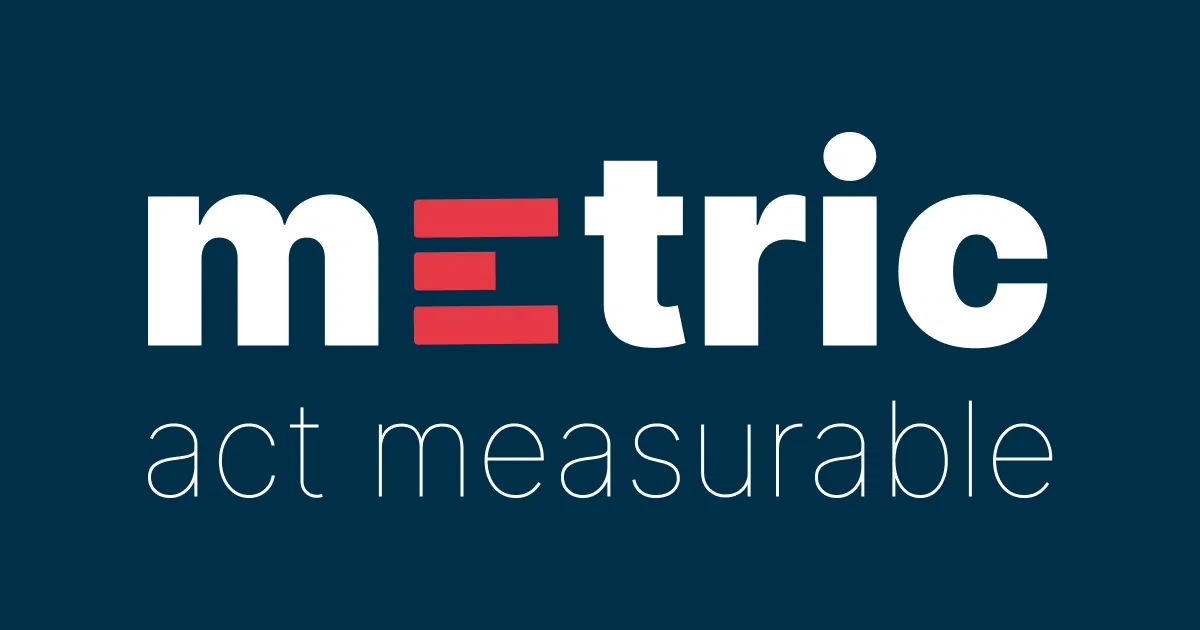# Install required libraries (run once):
# pip install pandas numpy matplotlib
import pandas as pd
import numpy as np
import matplotlib.pyplot as plt
df = pd.DataFrame({
"x": np.arange(0, 10, 1),
"y": np.random.randint(0, 10, 10)
})
print(df)17 Vibe Coding
 Ջերմուկ, լուսանկարի հղումը, Հեղինակ՝ Hrag Kosbekian
Ջերմուկ, լուսանկարի հղումը, Հեղինակ՝ Hrag Kosbekian
Song reference - ToDo
📌 Նկարագիր
📺 Տեսանյութեր
🏡 Տնային
📚 Նյութը
https://arstechnica.com/ai/2025/07/exhausted-man-defeats-ai-model-in-world-coding-championship/
https://x.com/FakePsyho/status/1945444118924272018
https://www.swebench.com/
https://t.me/hrantsbraindump/557
https://x.com/karpathy/status/1886192184808149383?lang=en
https://cursor.com/
🚀 AI-Powered Development with GitHub Copilot
Welcome to the world of AI-assisted coding! In this session, we’ll explore how GitHub Copilot and other AI tools are revolutionizing software development.
🎓 Getting GitHub Copilot Free with University Email
Step-by-Step Guide:
1. Verify Your Student Status
- Go to GitHub Education
- Click on “Get Student Benefits”
- Sign in with your GitHub account or create one
2. Apply for GitHub Student Developer Pack
- Upload proof of enrollment (student ID, transcript, or enrollment letter)
- Use your university email address (.edu, .ac.uk, etc.)
- Wait for verification (usually 1-7 days)
3. Access GitHub Copilot
- Once approved, go to GitHub Copilot
- Click “Start free trial” or “Get Copilot for free”
- Students get GitHub Copilot completely free!
4. Benefits Included:
- GitHub Copilot (AI pair programmer)
- GitHub Pro (unlimited private repositories)
- Access to GitHub Codespaces
- Various other developer tools and credits
Alternative Options:
- GitLab Duo: Free tier available
- Codeium: Free for individual developers
- Tabnine: Free tier with limited features
🤖 Types of AI Coding Assistance
1. ASK - Conversational Programming 💬
Get answers to coding questions and explanations:
Use Cases: - “How do I implement a binary search in Python?” - “What’s the difference between == and is in Python?” - “Explain this regex pattern: ^[a-zA-Z0-9._%+-]+@[a-zA-Z0-9.-]+\.[a-zA-Z]{2,}$”
Tools: - GitHub Copilot Chat - ChatGPT/Claude for coding - Stack Overflow integrated AI
2. EDIT - Code Transformation ✏️
Modify existing code with AI assistance:
Use Cases: - Refactor functions for better performance - Add error handling to existing code - Convert code between programming languages - Optimize algorithms - Add documentation and comments
Tools: - Cursor AI (excellent for editing) - GitHub Copilot inline suggestions - Codeium edit mode
3. AGENT - Autonomous Development 🤖
AI that can work independently on larger tasks:
Use Cases: - Generate entire modules or classes - Create test suites automatically - Build complete features from requirements - Handle complex multi-file changes - Project scaffolding and setup
Emerging Tools: - GitHub Copilot Workspace - Devin (Cognition Labs) - GPT Engineer - AutoGPT for coding tasks
Best Practices:
- Start with ASK for learning and understanding
- Use EDIT for improving existing code
- Reserve AGENT for well-defined, larger tasks
⚡ Slash Commands - Quick AI Actions
Slash commands provide quick access to common AI-powered development tasks:
Essential Slash Commands:
📝 Documentation & Explanation
/explain- Get detailed explanation of selected code/doc- Generate documentation for functions/classes/comment- Add inline comments to code/summarize- Summarize what a file or function does
🔧 Code Improvement
/fix- Automatically fix bugs or errors/optimize- Improve code performance/refactor- Restructure code for better readability/simplify- Make complex code more straightforward
🧪 Testing & Quality
/test- Generate unit tests for functions/tests- Create comprehensive test suites/review- Get code review suggestions/lint- Check and fix code style issues
🚀 Generation
/generate- Create new code from description/scaffold- Generate boilerplate code structure/api- Generate API endpoints or client code/mock- Create mock data or functions
How to Use:
- Select code or place cursor
- Type
/followed by command name - Add specific instructions if needed
- Press Enter to execute
Examples:
/explain this recursive function
/fix the memory leak in this code
/test this authentication function
/generate a REST API for user management🎯 Adding Context - Making AI Smarter
🔌 Model Context Protocol (MCP)
MCP is a standardized way for AI models to securely connect to external tools and data sources.
🎯 What is MCP?
Model Context Protocol is an open protocol developed by Anthropic that enables AI assistants to securely access and interact with external systems. Think of it as a “universal translator” that allows AI models to:
- Understand your development environment (files, databases, APIs)
- Execute actions with proper permissions and security
- Maintain persistent context across different tools and sessions
- Work with live, real-time data instead of static information
🏗️ Architecture Overview
┌─────────────────┐ ┌─────────────────┐ ┌─────────────────┐
│ AI Assistant │◄──►│ MCP Client │◄──►│ MCP Server │
│ (Claude, etc) │ │ (VS Code) │ │ (File System) │
└─────────────────┘ └─────────────────┘ └─────────────────┘
│
▼
┌─────────────────┐
│ External Tool │
│ (Git, Database) │
└─────────────────┘Components: - MCP Client: The application hosting the AI (VS Code, cursor, etc.) - MCP Server: Bridges AI requests to specific tools/services - Protocol: Standardized communication format (JSON-RPC)
🛠️ Types of MCP Servers
1. File System Access
{
"tools": [
{
"name": "read_file",
"description": "Read contents of a file",
"parameters": {
"path": "string"
}
},
{
"name": "write_file",
"description": "Write content to a file",
"parameters": {
"path": "string",
"content": "string"
}
}
]
}2. Database Operations
# Example: PostgreSQL MCP Server
class PostgreSQLServer:
def execute_query(self, query: str):
"""Execute SQL query and return results"""
return self.connection.execute(query).fetchall()
def get_schema(self):
"""Return database schema information"""
return self.connection.execute(
"SELECT table_name FROM information_schema.tables"
).fetchall()3. Git Integration
# Git MCP Server capabilities:
git status # Check repository status
git log --oneline # View commit history
git diff # Show changes
git checkout -b # Create new branch
git commit -m # Commit changes🔧 Setting Up MCP in VS Code
Step 1: Install MCP Extension
# Install VS Code MCP extension
code --install-extension anthropic.mcpStep 2: Configure MCP Servers
Create mcp-settings.json:
{
"servers": {
"filesystem": {
"command": "npx",
"args": ["@anthropic/mcp-server-filesystem", "/path/to/project"],
"env": {}
},
"git": {
"command": "npx",
"args": ["@anthropic/mcp-server-git", "--repository", "."],
"env": {}
},
"sqlite": {
"command": "npx",
"args": ["@anthropic/mcp-server-sqlite", "--db-path", "./data.db"],
"env": {}
}
}
}Step 3: Enable in VS Code Settings
{
"mcp.servers": {
"filesystem": {
"command": "npx",
"args": ["@anthropic/mcp-server-filesystem", "${workspaceFolder}"]
}
}
}🚀 Practical Examples
Example 1: AI Code Review with File Access
Human: "Review the authentication module in src/auth/"
AI Response: "I'll analyze your authentication module. Let me examine the files..."
[MCP reads src/auth/login.py, auth.py, middleware.py]
"I found several issues:
1. Password validation in login.py line 23 lacks complexity requirements
2. JWT tokens in auth.py don't have expiration handling
3. Missing rate limiting in middleware.py
Would you like me to fix these issues?"Example 2: Database-Driven Development
Human: "Create a user management API based on our database schema"
AI Response: "Let me check your database structure first..."
[MCP queries database schema]
"I see you have users, roles, and permissions tables. I'll create:
1. User CRUD endpoints
2. Role assignment functionality
3. Permission-based middleware
Shall I implement this in your existing Flask app structure?"Example 3: Git Workflow Automation
Human: "Help me prepare this feature branch for review"
AI Response: "I'll help you prepare for review..."
[MCP executes: git status, git log, git diff]
"I see you have:
- 5 commits on feature/user-dashboard
- 2 modified files with uncommitted changes
- No conflicts with main branch
Let me:
1. Commit the pending changes
2. Squash related commits
3. Write a comprehensive PR description"🔒 Security & Permissions
Sandboxed Execution
permissions:
file_system:
read: ["src/", "tests/", "docs/"]
write: ["src/", "tests/"]
exclude: [".env", "secrets/"]
database:
read: ["users", "products"]
write: ["logs", "analytics"]
admin: false
git:
read: true
commit: true
push: false # Requires explicit approvalUser Consent Flow
AI: "I need to modify 3 files and run 2 database queries.
Files: src/models/user.py, tests/test_user.py, docs/api.md
Queries: SELECT user schema, INSERT test data
Do you approve these actions? [Y/n]"🎯 Best Practices
1. Start Small
# Begin with read-only access
mcp_config = {
"permissions": {
"file_read": True,
"file_write": False,
"command_execution": False
}
}2. Use Specific Scopes
{
"servers": {
"project-files": {
"command": "mcp-filesystem",
"args": ["--root", "./src", "--readonly"]
}
}
}3. Monitor AI Actions
# Log all MCP interactions
def log_mcp_action(action, params, result):
logger.info(f"MCP Action: {action}")
logger.info(f"Parameters: {params}")
logger.info(f"Result: {result[:100]}...") # Truncated🔮 Future of MCP
Emerging Capabilities:
- Multi-modal contexts: Images, audio, video analysis
- Real-time collaboration: Multiple developers + AI
- Cross-platform protocols: Universal tool integration
- Advanced security: Zero-trust MCP networks
Industry Adoption:
- GitHub Copilot Workspace: Deep repository integration
- Cursor: Native MCP support for file operations
- JetBrains: MCP plugins for IDEs
- VS Code: Built-in MCP client capabilities
MCP represents the future where AI assistants become true development partners, not just code completion tools.
# add timer for 20 seconds
import time
time.sleep(10)
print("10 seconds have passed")10 seconds have passed🎲 00
- ▶️Video
- 🔗Random link
- 🇦🇲🎶
- 🌐🎶
- 🤌Կարգին
